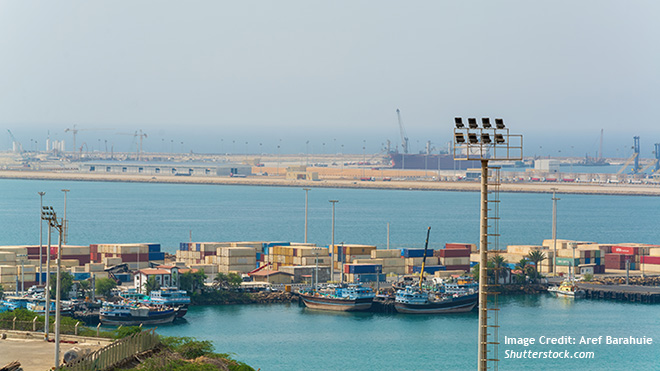Staying Relevant: India’s Taliban Engagement in Strategic Afghanistan

India recently announced it would send a consignment of 20,000 metric tons of wheat to the Taliban-led Afghanistan through Chabahar port in Iran. This wheat is part of India’s humanitarian assistance to the Afghan people after the Taliban takeover in August 2021. India, a friendly country to Afghanistan, has been sending wheat consignments to the people in Afghanistan since 2002. Last year, India dispatched about 40,000 metric tons of wheat to Afghanistan in several shipments through the land route via Pakistan. The quality of India’s wheat was measured by the Taliban to be better than the Pakistani wheat, also sent as humanitarian assistance for the Afghan people.
This wheat diplomacy of India has influenced public opinion positively in Afghanistan while also being appreciated by the Taliban. This approach has increased the inclination of the Islamic Emirate of Afghanistan to rebuild rapprochement with New Delhi in order to bring India’s reconstruction and developmental role back to Afghanistan. As the Taliban have frequently stated, even in meetings with officials of India, through media platforms India can continue to complete pending projects in the country and enhance its role in different development projects. For example, officials of Da Afghanistan Bank (DAB) approached the Indian embassy in Kabul and asked for technical support in October 2022.
However, unlike other countries in the region, India is not as involved in engaging with the current de facto regime in Kabul. It has partially reopened its embassy in Kabul and providing humanitarian aid to Afghanistan while playing an active role in the region. Given the volatile situation in the country, such a careful approach demonstrates India’s soft power strategy without completely endorsing or recognizing the Taliban regime.
Staying Engaged with the Taliban
Using Chabahar port for the shipment of wheat from India to Afghanistan is a positive step for both countries. The port enjoys a special strategic importance for which India has invested $85 million to connect with Afghanistan and Central Asia. A key component of the agenda of the India-Central Asia First Summit, held in virtual format between the heads of states in January 2022, was to include Central Asian countries in a joint working group on Chabahar Port to address issues of free movements of goods and services between India and the region. A joint working group was also established on Afghanistan in order to engage with the Taliban on security, trade and transit, and connectivity initiatives. The first meeting of the group will pave the way for the inclusion of Central Asian countries in this port and will provide the opportunity to discuss how to operate the port and engage with the Taliban.
Due to the clash of interests and geopolitical divisions, Afghanistan holds an important position in the region as it connects South Asia with Central Asia. Since the Taliban takeover, India continues to play a major role on every platform to ensure a stable Afghanistan in the interest of regional security and stability. Meanwhile, transit trade for Afghan traders has, even in Taliban rule, been a problem through the overland routes to Pakistan.
Transit trade has been the victim of frayed politics between the two countries for which Afghan traders have continued to pay the highest cost. Therefore, the current regime in Kabul should contemplate alternative routes to reduce dependency on Pakistan. For this purpose, Taliban should make efforts to take firm strides for making the Chabahar port operative together with stakeholders, and establish effective engagements with India, Iran, and Central Asia countries.
Enhancing Chabahar Connect
Furthermore, the International North-South Transport Corridor (INSTC), a multi-modal transportation agreement established in 2000 by India, Iran, and Russia, that connects the Indian Ocean and the Persian Gulf to the Caspian Sea and Europe, is a mega project of 13 nations for the larger region. India has already proposed to include Afghanistan and Uzbekistan in INSTC project which boosts Afghanistan’s interests in the region.
Thus, the stakeholders are working hard to make the INSTC operative, and plans are underway to include Chabahar port, which will give momentum to the strategic position of Afghanistan. It will also enhance India’s position to compete against China’s ‘One Belt, One Road’ (now known as the Belt and Road Initiative) initiative, and against Pakistan for access to Central Asia’s large resources.
Consequently, India, Afghanistan (the Taliban), Iran and the five Central Asian countries should forge positive ties to make the Chabahar port operative and create a long transport corridor from India to Afghanistan and onwards to Central Asia. The port should also be quickly dovetailed into the larger INSTC project, creating a massive transit zone for economic cooperation.